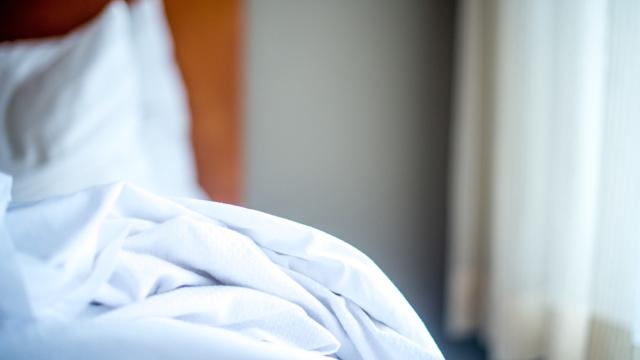That many people don’t get enough sleep is hardly news, but a recent study suggests that sleep deprivation is getting worse in the U.S., especially for people with high-pressure jobs in medicine, law enforcement and transportation.
Editor’s Note: While we don’t currently have local Australian data for this study, the trends noted here are likely to be reflected in our own working population.
There’s been plenty of research suggesting that people generally aren’t getting as much sleep as they ought to be. But according to Jagdish Khubchandani, a public health researcher and epidemiologist at Ball State University in Indiana, much of this work has focused on people already struggling with diagnosed sleep issues or other health problems.
For their new study, published this month in the Journal of Community Health, Khubchandani and his co-author wanted to quantify how much of a problem sleep deprivation might be among working Americans, as well as whether things have changed over time.
They looked at nine years of data from a large, nationally representative survey of Americans conducted by the U.S. Census, one that asks people about their lifestyle habits. In 2010, they found, 30.9 per cent of employed Americans said that they slept under seven hours a night on average. But by 2018, 35.6 per cent said the same.
“At first, we thought it might be because people are getting older and living longer,” Khubchandani told Gizmodo over the phone, referencing research showing that older people tend to sleep less. “So we also controlled for different variables like age, gender and race. But despite all the population changes in the past five to 10 years, we still found that people are sleeping less and less.”
In other words, there are factors outside our biology that are driving people away from shut eye. Though the study wasn’t designed to figure out exactly what these reasons are, Khubchandani pointed to other research showing that Americans are more stressed out, spending more time around screens and smartphones now than in the past, and most especially, working longer hours. All of these could at least partly explain the trend.
The authors also characterised the groups of people who are having the roughest sleep. In 2018, half of people working in the police and military said they slept fewer than seven hours a night, as did 45 per cent of people in health care professions and 41 per cent of people working in transportation and material moving, such as truck drivers.
When it came to race, black people were most likely to report poor sleep (46.5 per cent), while women (35.8 per cent) were slightly more likely than men to say the same. Over the nine-year span, though, multiracial people, men and those living in the Western U.S. experienced the greatest increase in sleep deprivation, compared to other groups.
Though it might go without saying, a constant lack of sleep harms our overall health.
“One general problem that people are more likely to gain weight, have diabetes and stroke, which is linked to stress,” Khubchandani noted. “And with populations like police officers, truck drivers, nurses, physicians — these are the people who should be fully rested. If you’re not sleeping enough, your attention span is shortened, your reflexes are weak, and you really cannot function at your best.”
Though there are common sense things people could do to improve their sleep habits (like turning off their TV or phones late at night), Khubchandani firmly believes that employers should be doing much more to keep their employees well-rested, by demanding fewer hours of them, and global government should make sure they do so.
“Employers… complain, ‘Oh, we’re paying too much in health care costs.’ But they’re paying more in health care costs because they’re not preventing this. And they have the choice to take care of their employees’ sleep up front, or end up paying more” later on, he said.
